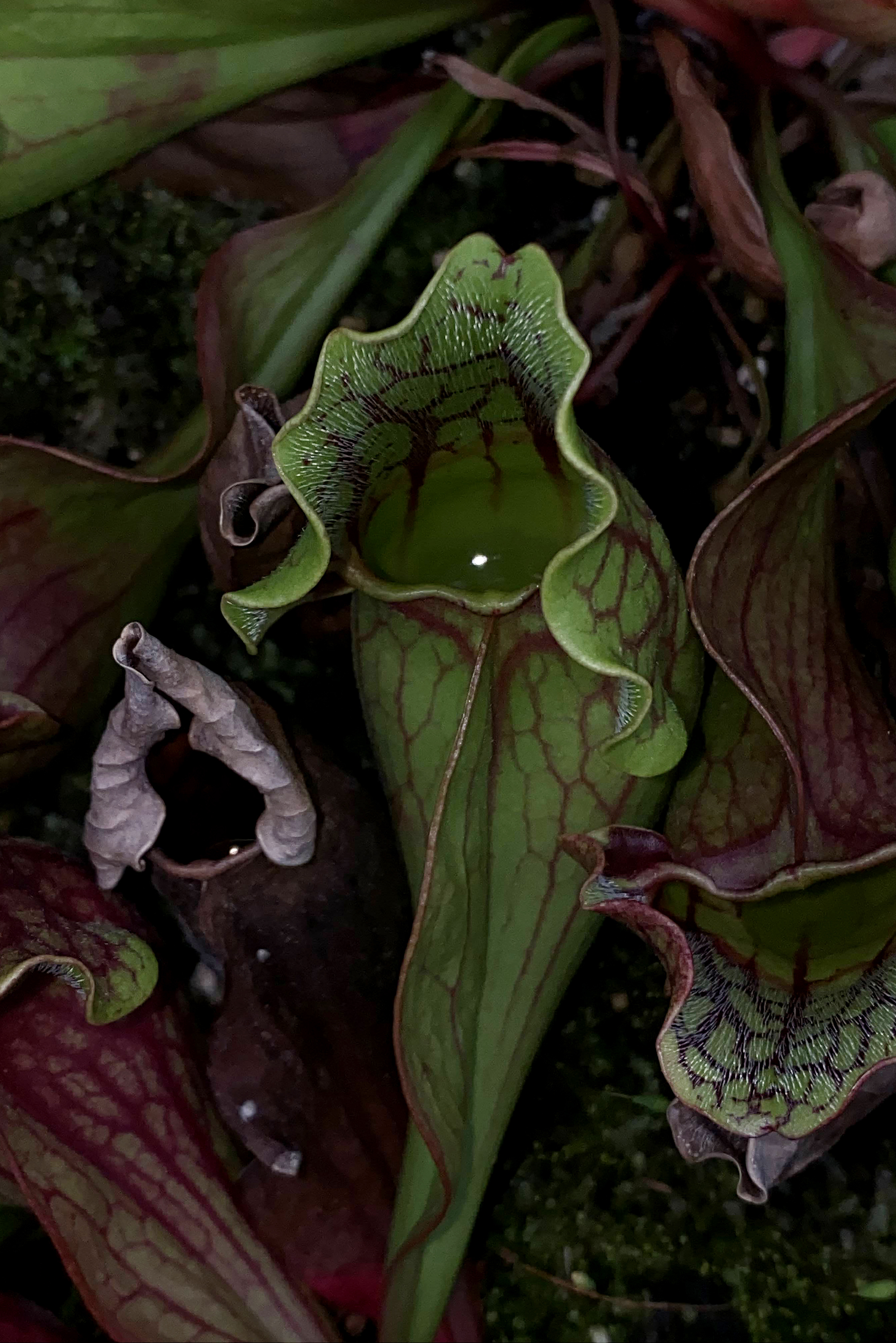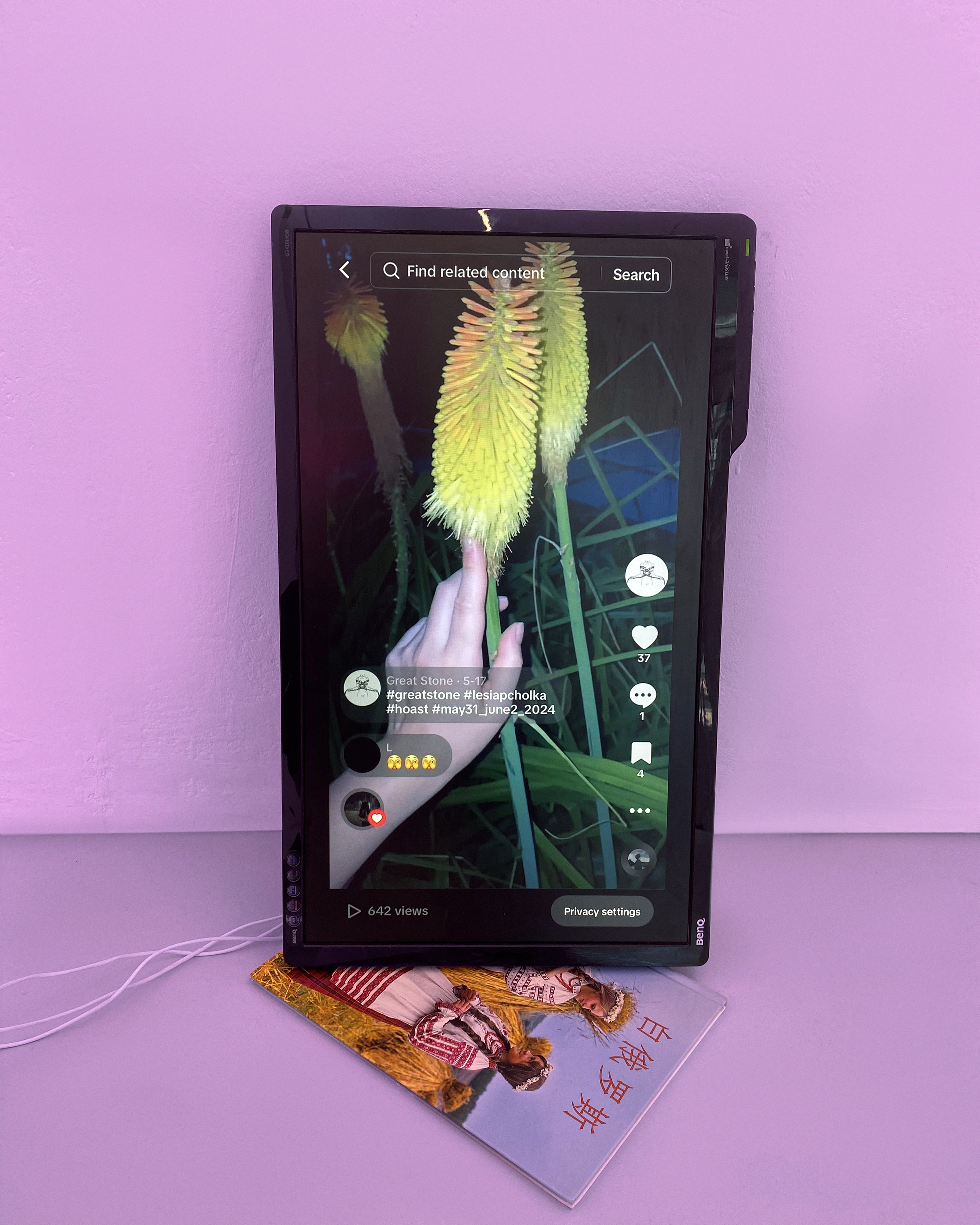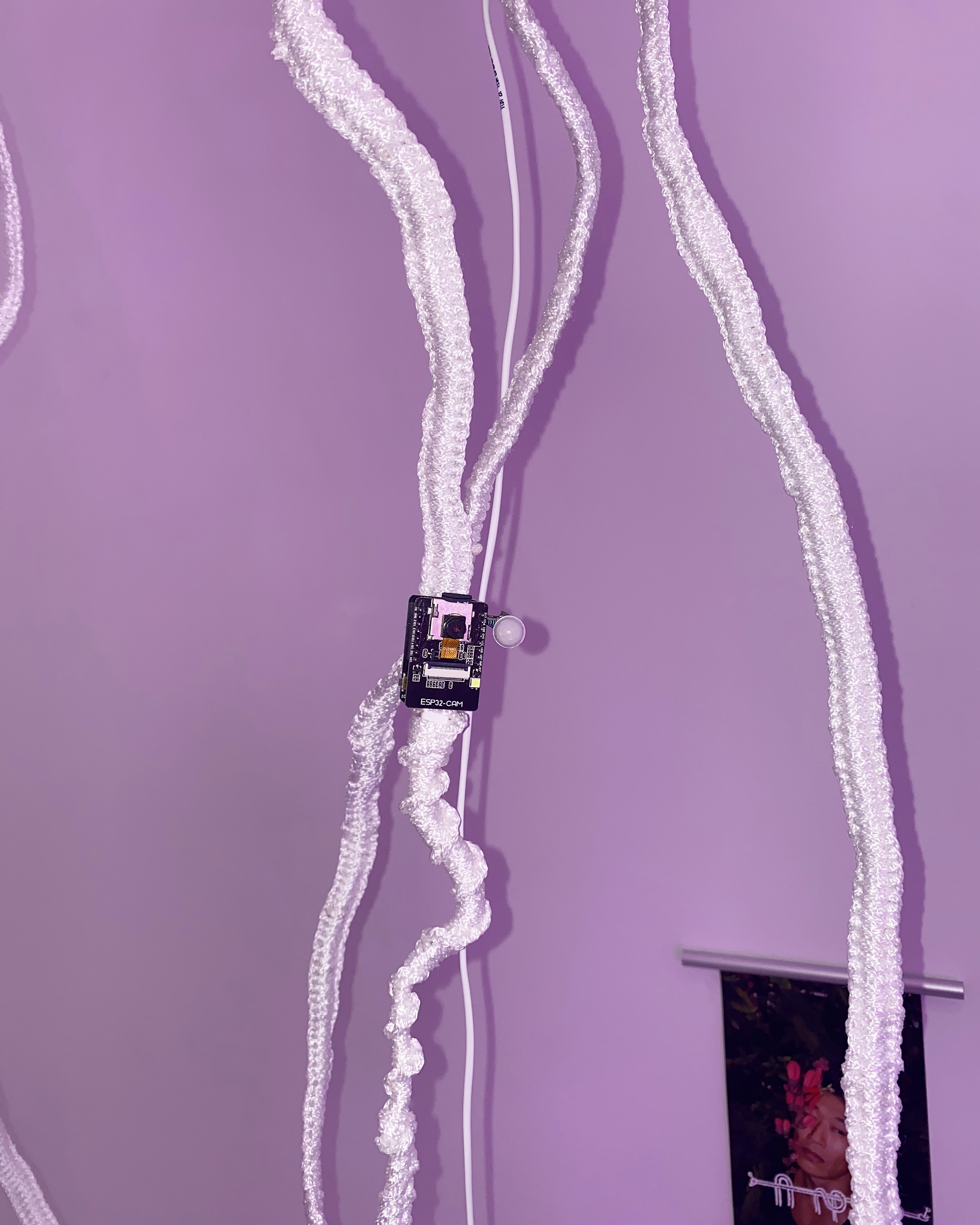GREAT STONE
sculptures with cameras made of ropes (macramé technique)
OPA #12 Kolonia Artystów
/ 2021. Gdansk, PL



In this work, Pcholka draws an analogy between Belarus and China, imagining them as belonging to a shared cultural space, in which practices are regularly exchanged. She does so by reinterpreting the macramé technique. Her knotted ropes with embedded cameras symbolize the interplay between cultural contact and control. Her photographs, videos, and object arrangements reveal repressive tactics, as exemplified by a set of tea tables in the shape of the countries’ geographical borders, on which rest a security camera and a small statue of a bird. Utilized as a means for uniting global power structures, interweaving also carries here connotations of domestic practices that are stereotypically associated with ‘women’s work.’
The title of the work refers to an industrial hub built by Chinese developers 20 kilometres from the Belarusian capital. This new city, called “Great Stone,” is a self-contained zone that includes housing, cafés, and even cultural venues for Chinese workers who come to Belarus to develop business initiatives, as the country lies along the route of the ‘new Silk Road.’
Presented as a kind of botanical garden, Great Stone draws parallels between cultural traditions, like the roots of plants and technological systems. The work thus bridges the physical and digital worlds, as well as the personal and political spheres.




